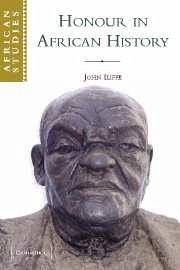
Warfare in African History
Versandkostenfrei!
Versandfertig in 1-2 Wochen
31,99 €
inkl. MwSt.

PAYBACK Punkte
16 °P sammeln!
This book examines the role of war in shaping the African state, society, and economy. Richard J. Reid helps students understand different patterns of military organization through Africa's history; the evolution of weaponry, tactics, and strategy; and the increasing prevalence of warfare and militarism in African political and economic systems. He traces shifts in the culture and practice of war from the first millennium into the era of the external slave trades, and then into the nineteenth century, when a military revolution unfolded across much of Africa. The repercussions of that revoluti...
This book examines the role of war in shaping the African state, society, and economy. Richard J. Reid helps students understand different patterns of military organization through Africa's history; the evolution of weaponry, tactics, and strategy; and the increasing prevalence of warfare and militarism in African political and economic systems. He traces shifts in the culture and practice of war from the first millennium into the era of the external slave trades, and then into the nineteenth century, when a military revolution unfolded across much of Africa. The repercussions of that revolution, as well as the impact of colonial rule, continue to this day. The frequency of coups d'états and civil war in Africa's recent past is interpreted in terms of the continent's deeper past.














